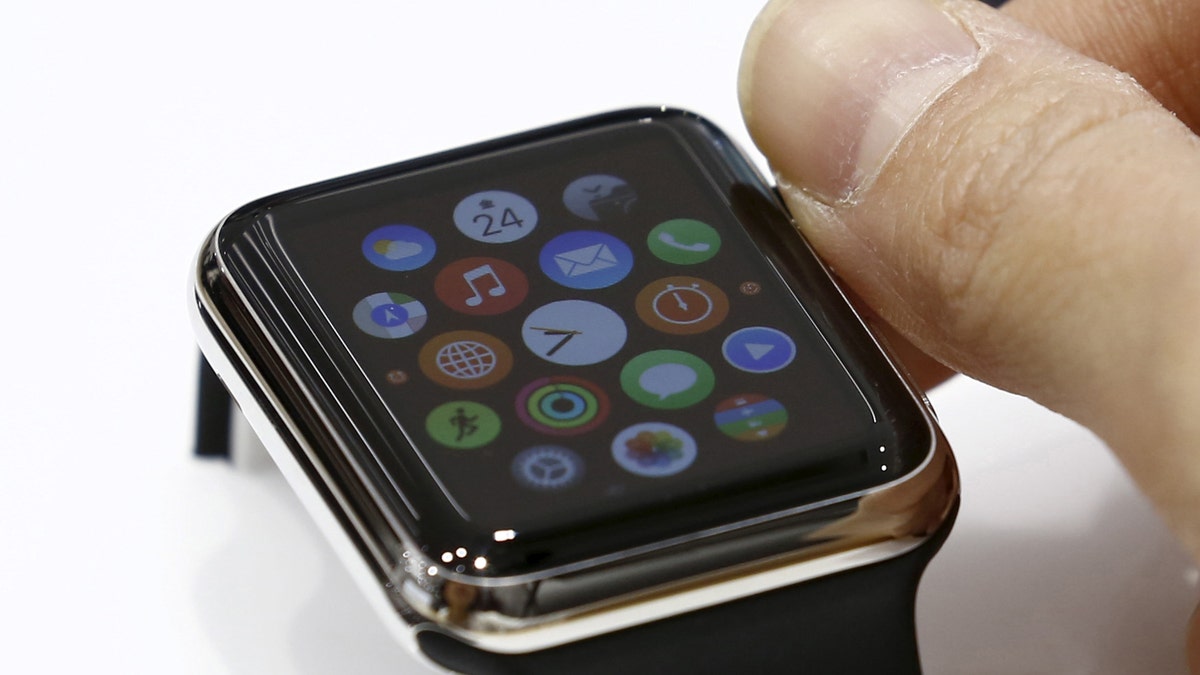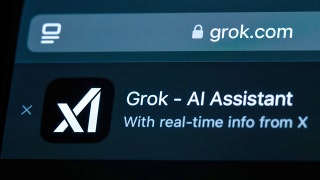
File photo - A woman uses Apple Watch that is on display at an electronics store in Omotasando in Tokyo April 24, 2015. (REUTERS/Thomas Peter)
Wearables haven’t played a big role in holiday sales in the past but that may be changing.
Both the Apple Watch and wearables from Fitbit were hot Black Friday items, according to a statement from Target, which listed both among the “most popular items.”
And Best Buy said on Sunday that “customers purchased twice as many wearables, including smartwatches and health-and-fitness trackers, as they did a year ago.”
FitBit: the San Francisco-based company, which filed an IPO in May of this year and went public in June, has proved to be one of the most popular purveyors of wearables so far this holiday season, according to a report in The Wall Street Journal. A Barclays analyst cited in the report said that the Fitbit was the “brand of choice” over the Black Friday weekend, despite being discounted less than competing products.
Related: Cyber Monday deals on PCs, tablets, and TVs extend into Cyber Week
And an October report from market researcher NPD said that “brand preference in the activity tracker space continues to be led by Fitbit, and by a large margin.” The report adds that Fitbit ownership has jumped 13 percentage points since February and it “remains the only activity tracker brand that consumers request by name on a regular basis.”
So, what does Fitbit have to offer? The FitBit Charge and the Charge HR are priced at $129.95 and $149.95 respectively. While the Charge and Charge HR track steps, distance, calories burned, floors climbed and active minutes, the HR adds heart-rate tracking and an exercise mode that records stats and post-workout summaries.
With the FitBit Surge, priced at $249.95, you get a bigger, more data-rich display and GPS tracking, among other features.
Related: iPad Pro first-take review
FitBit products sync stats wirelessly to leading smartphones and computers.
Apple Watch: The Apple Watch, released in April, has been a success by just about any standard. IDC said back in August that the Watch “debuted” in the No. 2 slot in the global wearables market behind No.1 Fitbit and expects Apple’s first wearable to “quickly establish itself as the overall leader in the smart wristwear market.”
That said, the Watch hasn’t been selling by the tens of millions like the iPhone – a high bar for any product. Some discounting may begin to change that, however. The Watch was discounted over Black Friday weekend at large retailers like Best Buy. As a result, some analysts are projecting a spike in Apple Watch sales this holiday season.
Related: Google Nexus 6P review roundup
Discounting is important because the Apple Watch isn’t cheap. It starts at $349 -- the high end of the range for other smart wristwear products like FitBit -- and most of the models are priced over $400. Its big advantage is that it’s packed with functions that less expensive wristwear devices don’t have, such as a data-rich display, the ability to take phone calls, respond to emails and texts, and apps like photo libraries and maps. That’s in addition to a host of fitness and health tracking features. And it’s tied to one of the world’s most popular smartphones.
Overall market growth: wearable shipments will reach 76.1 million units in 2015, up 163.6 percent from the 28.9 million units shipped in 2014, according to IDC. By 2019, worldwide shipments will reach 173.4 million units, resulting in a five-year compound annual growth rate of 22.9 percent, IDC said.








































